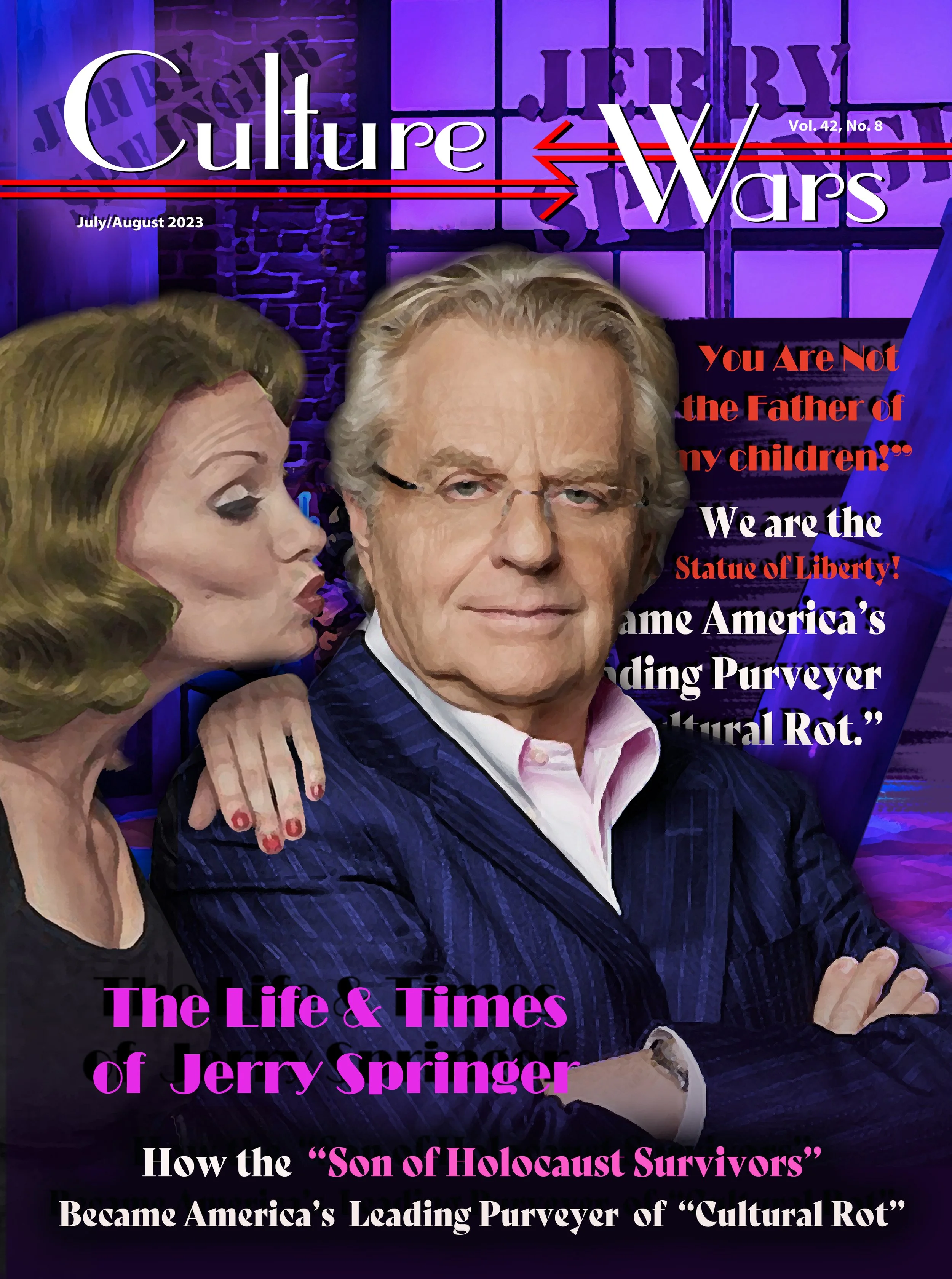The Life and Times of Jerry Springer
/Jerry Springer’s sole sibling (Evelyn) and parents emigrated to the U.S. in 1949. As Springer often remarks, “I left England at age five when I found out I couldn’t be king.” And therein lies a more revealing truth about Springer’s character than of Bob Hope’s, from whose repertoire he borrowed. With the assistance of a New York-based Jewish refugee foundation the family settled in a tightly-knit Jewish neighborhood in Queens, New York, where Springer’s aunt resided. Richard Springer made stuffed animals and peddled them on street corners, with Jerry often in tow. Margot worked as a bank clerk. Jerry’s mother laid down firm rules governing the household. ”It was always work before play,” she recalls. “‘I guess it’s the German in us.’”
Read More









